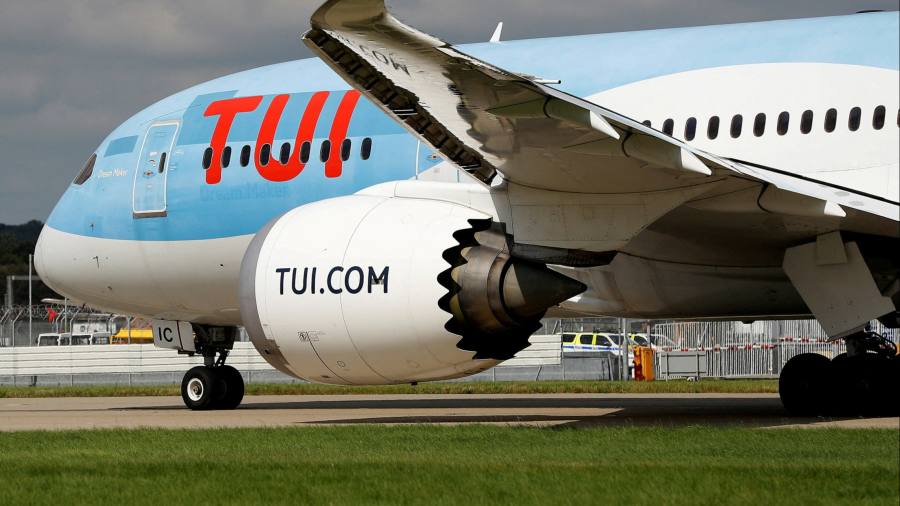
Tui, Europe’s largest tour operator, is planning to raise capital to fund a €730mn repayment of Covid-19 state aid to the German government as the travel group’s annual revenues returned to near pre-pandemic levels.
As part of the agreement, the Anglo-German holiday company plans to fully repay bailout money from Berlin’s economic stabilisation fund, known as WSF, as well as a warrant bond. The repayment could increase to as much as €957mn depending on share price performance.
“We have surmounted the existential crisis, it’s behind us,” said Sebastian Ebel, Tui’s newly appointed chief executive. “We still have homework to do as a consequence of the pandemic, further cutting our debt, refinancing, strengthening the balance sheet. But our operational focus is set clearly on returning to profitable growth.”
The repayment will be paid for by a share issuance early next year, which will probably raise €1.6bn-€1.8bn, according to Tui’s chief financial officer Mathias Kiep. Once the WSF funding is repaid, the company will have the right to buy back shares held by the German government.
Tui has about €2bn in credit lines provided by the WSF and the German state-owned investment bank KfW. It first started repaying state aid in March this year, having taken on €4bn in bailout funding during the pandemic.
Shares in the London-listed group fell 8 per cent on Wednesday to £1.35. Peel Hunt analysts cut their target price for Tui, arguing it would be “difficult” for the share price “to make progress ahead of” the future rights issue.
Tui on Wednesday reported revenues in the year to September 30 of €16.5bn, nearing full-year 2019 revenues of €18.9bn. The travel group, which operates airlines, hotels and cruises, also posted €409mn in underlying earnings over the same period, from a loss of about €2.1bn last year.
Ebel said Tui was “gradually pruning back the state engagement”, adding that the agreement with the WSF and the planned capital increase were “the next logical steps back to normality and complete financial independence”.
He added that the rebound of the travel sector over summer was “very encouraging” and that winter was following the “same trend”. Airline bookings during the winter were 84 per cent of the levels recorded in the 2018-19 winter season.
Average holiday prices for winter this year were up 28 per cent on 2019, “which will help to soften the impact from [currency] volatility and the current higher inflationary environment”, the company said.